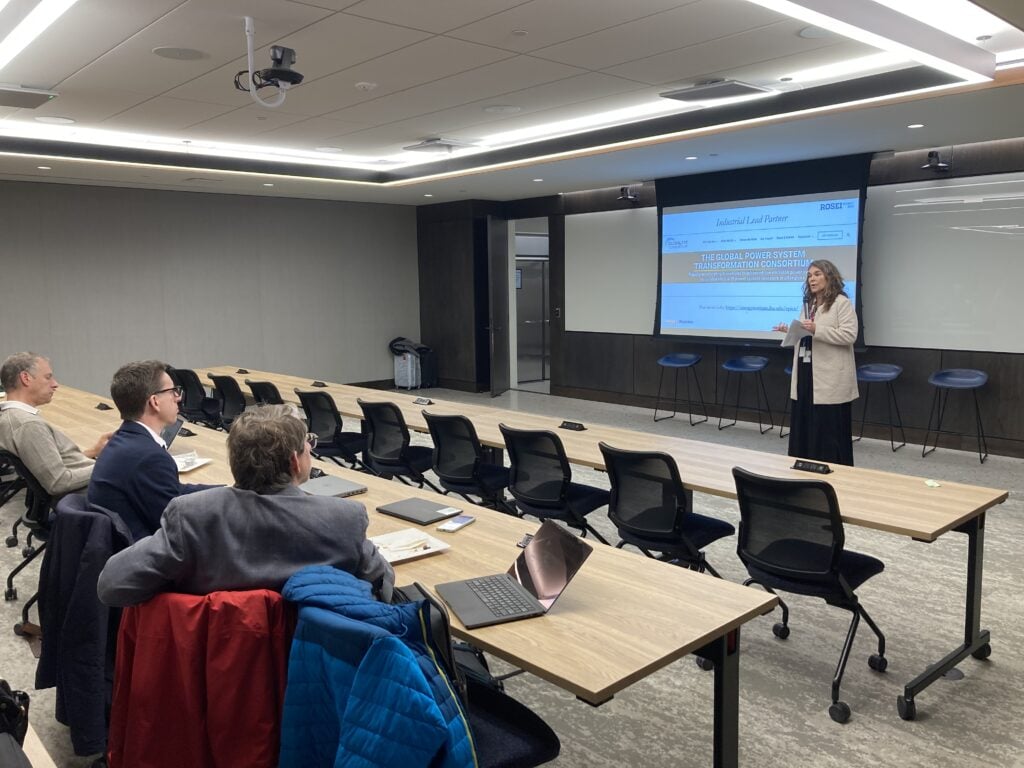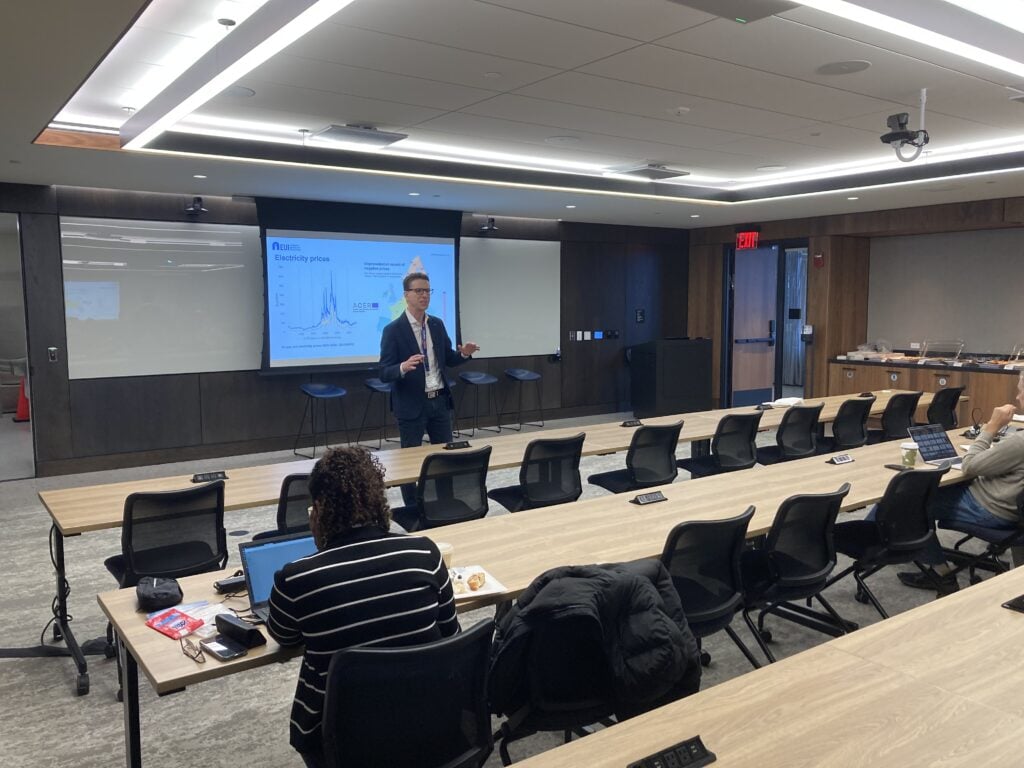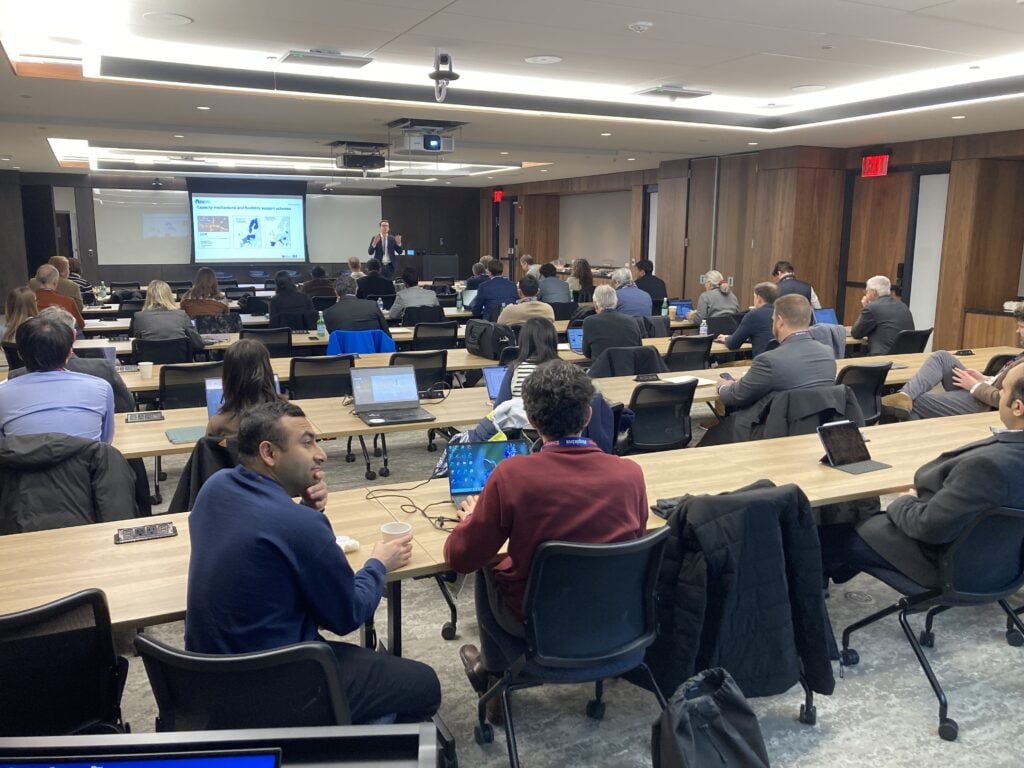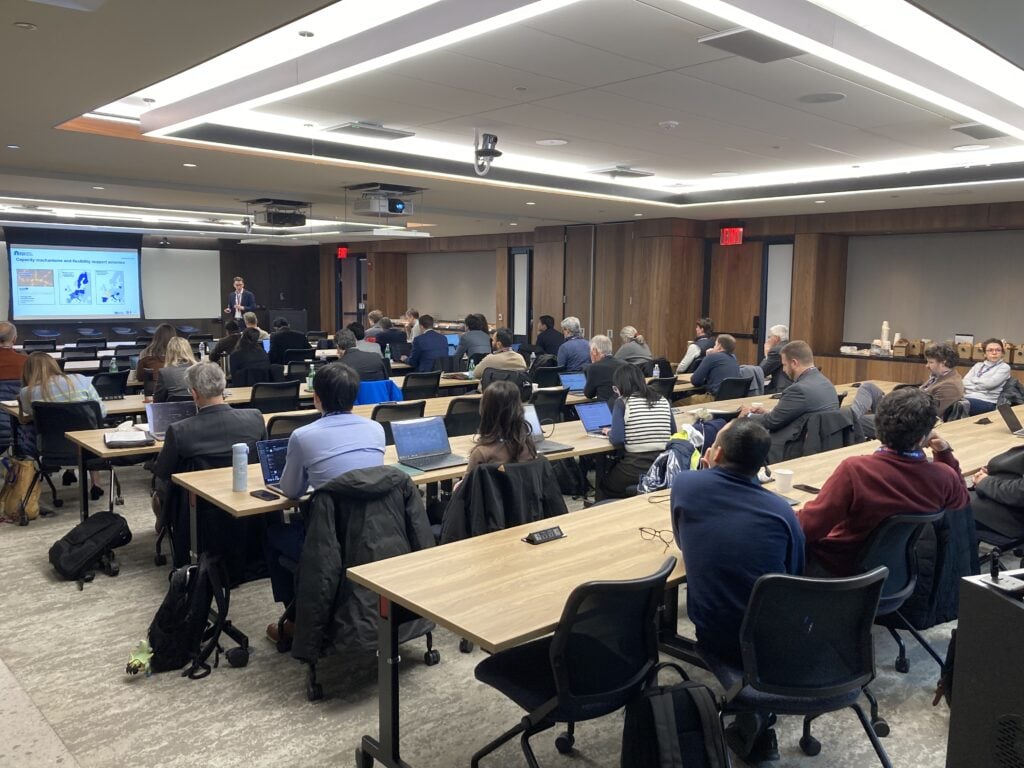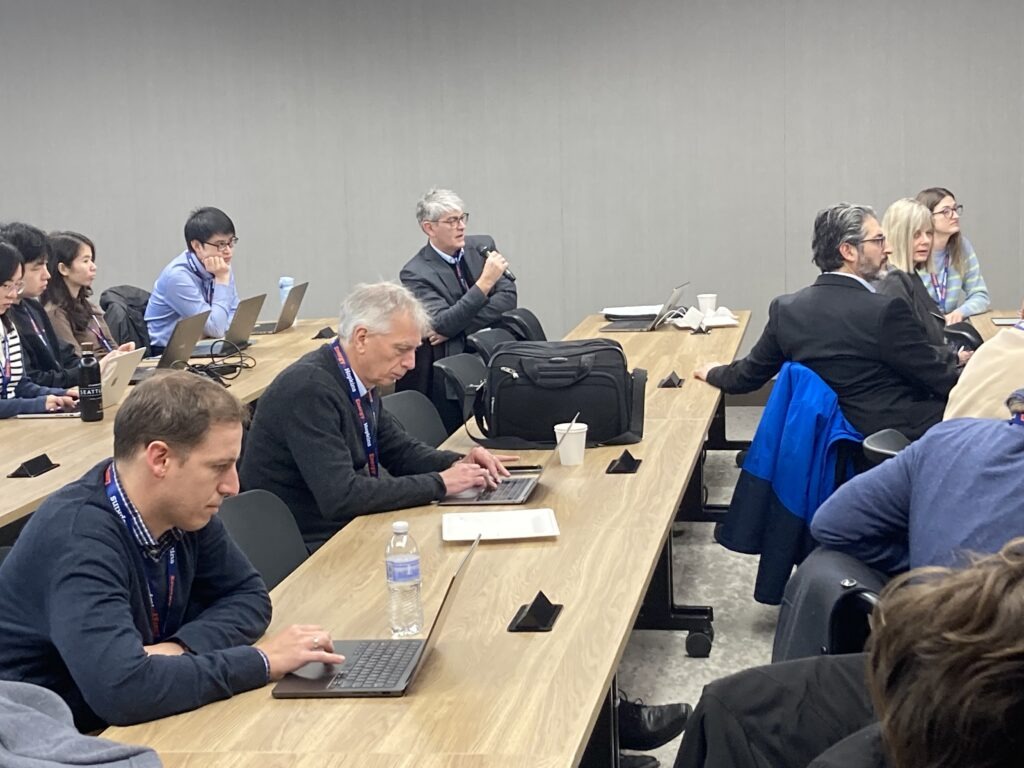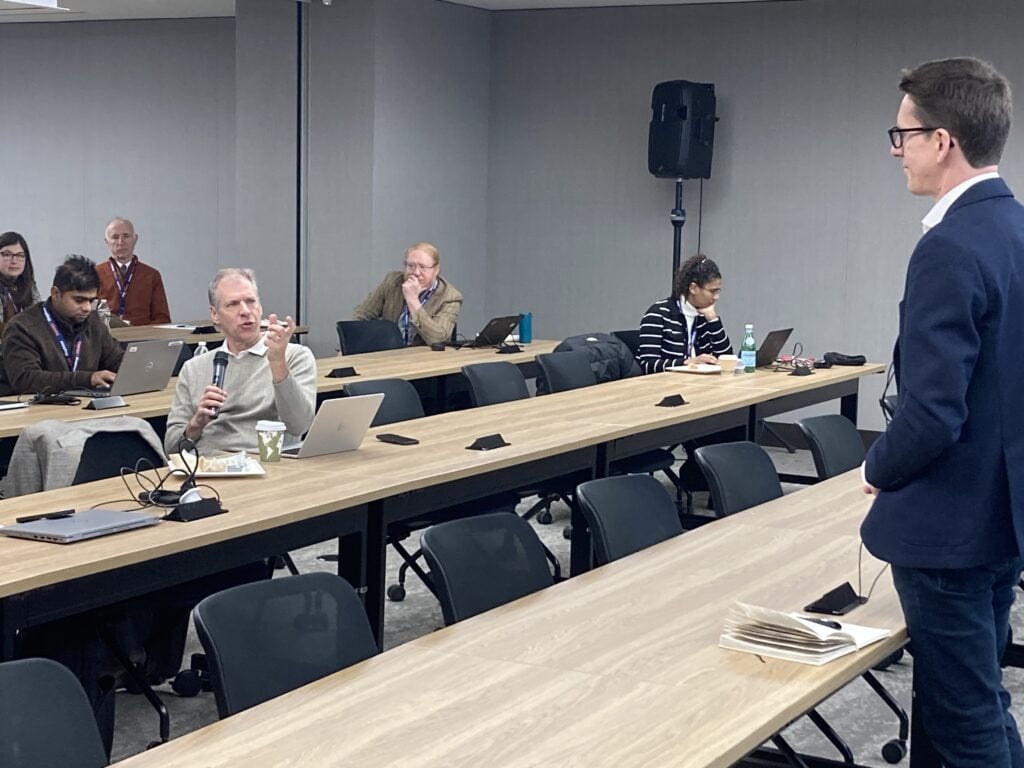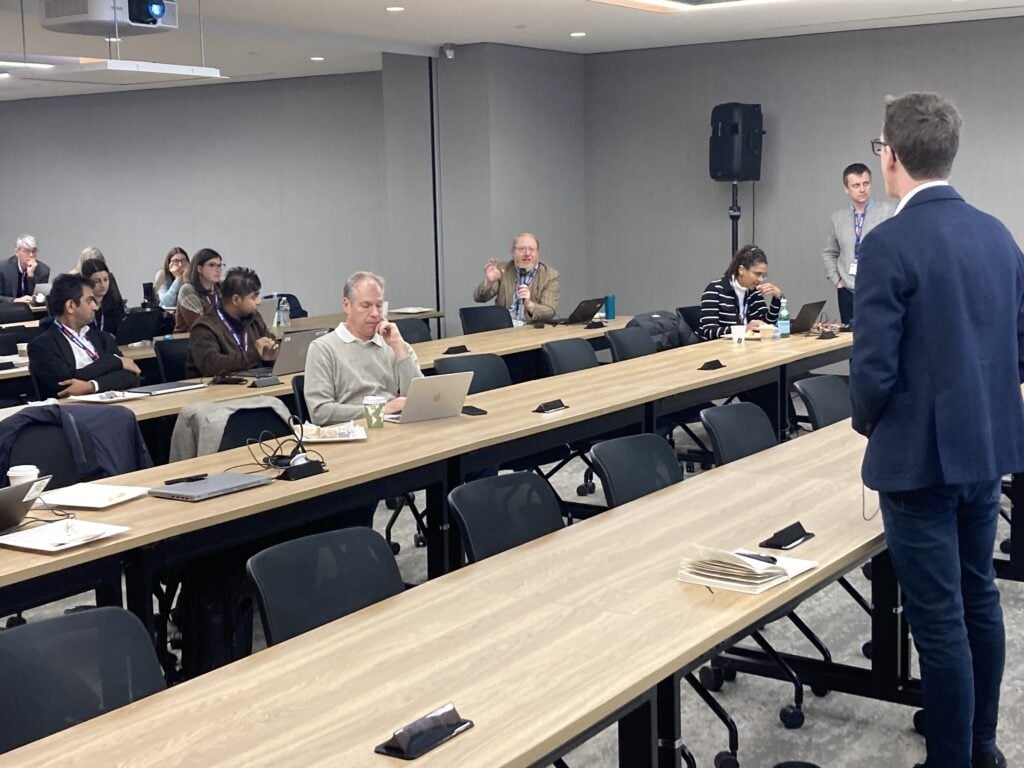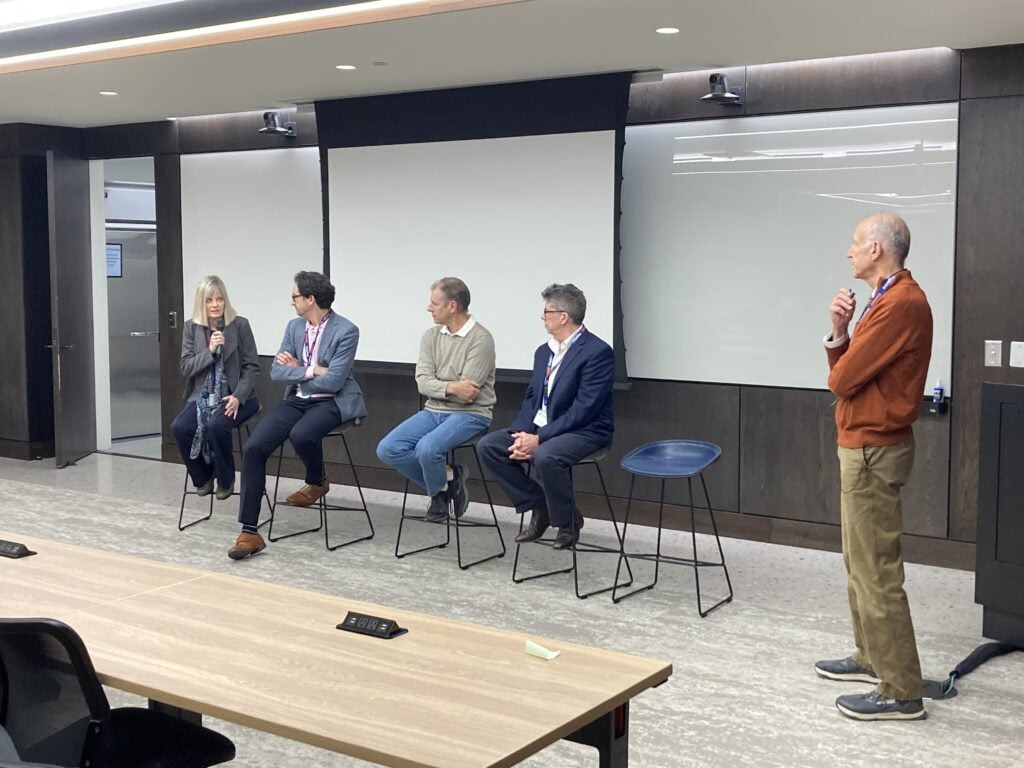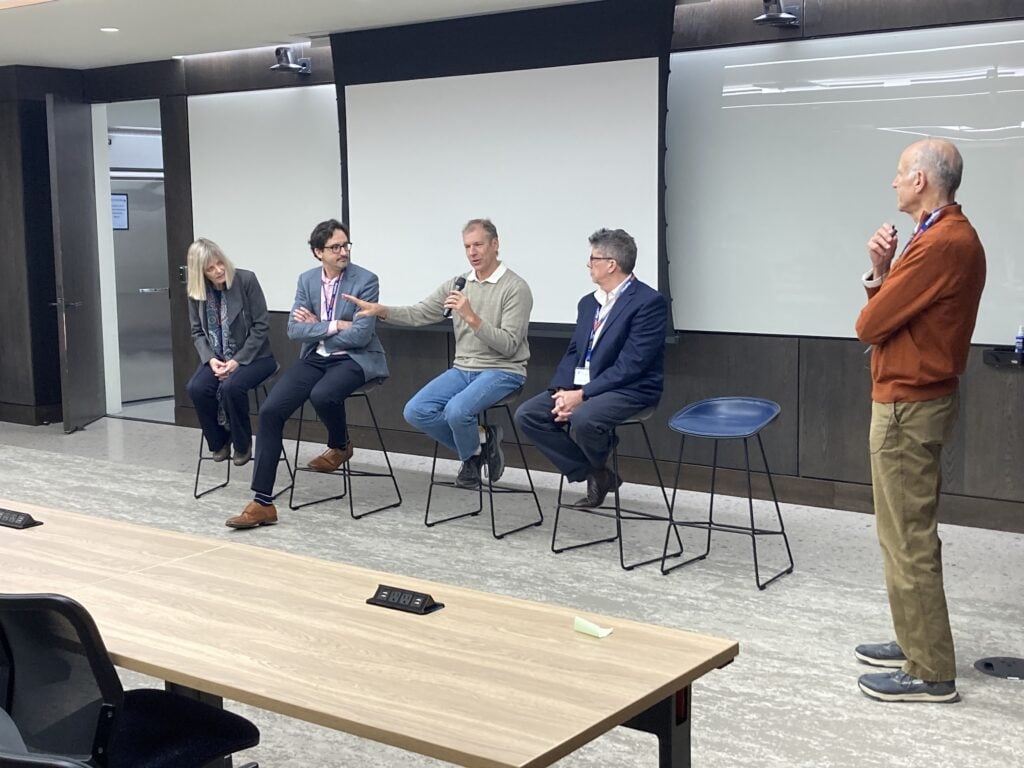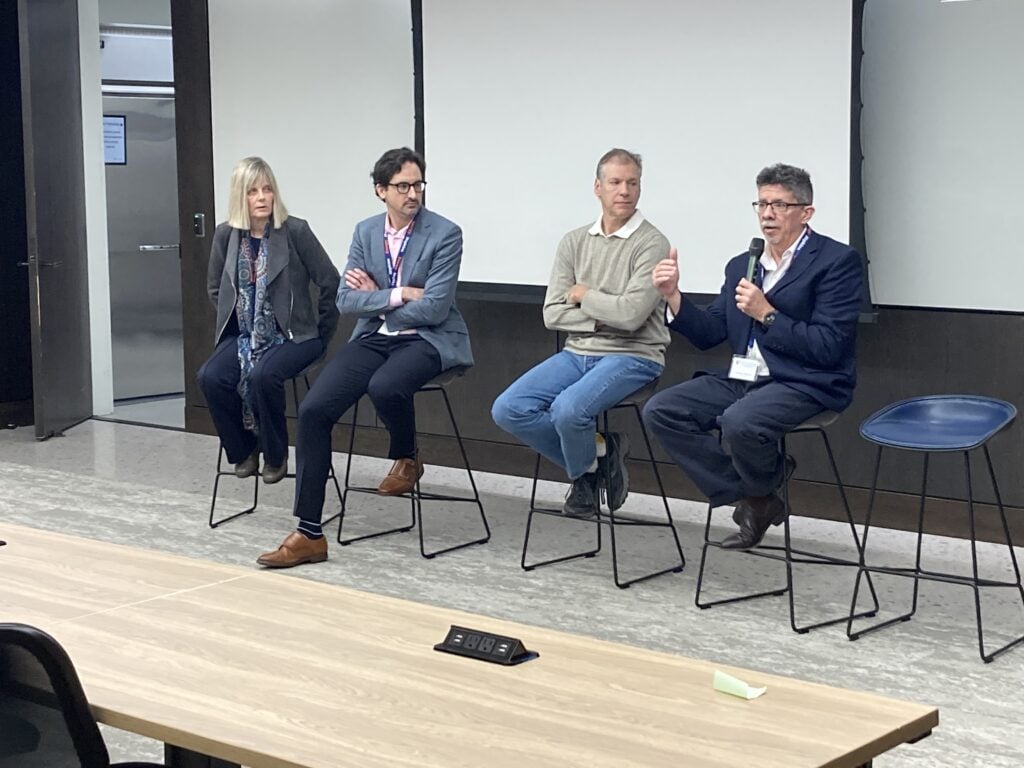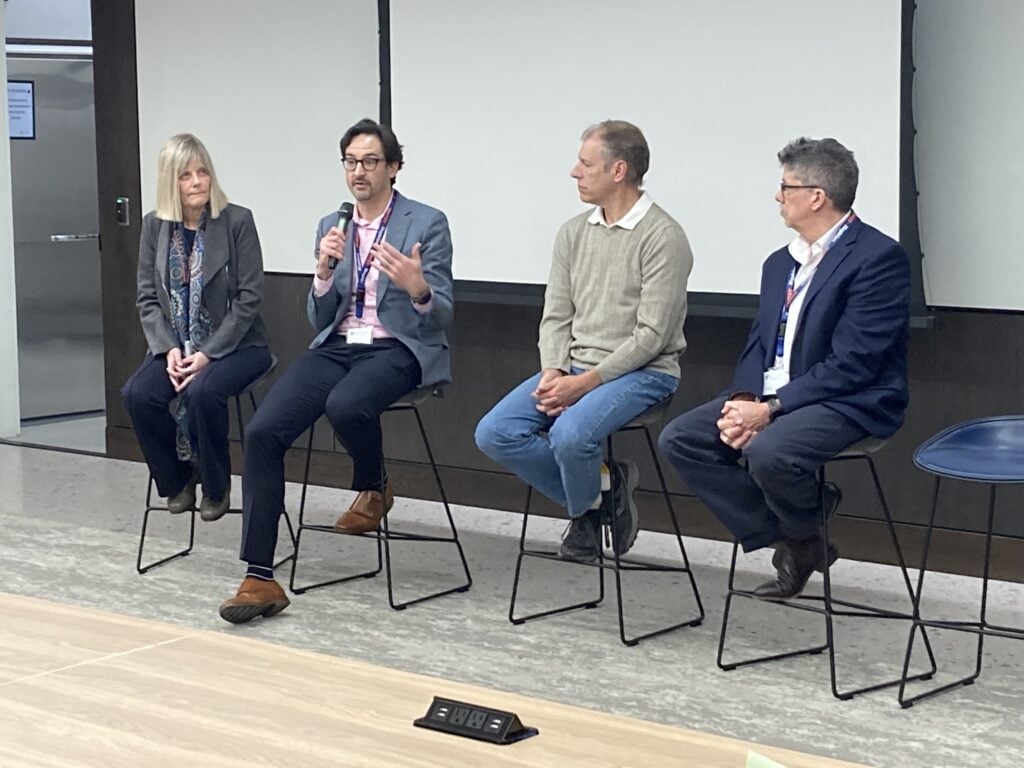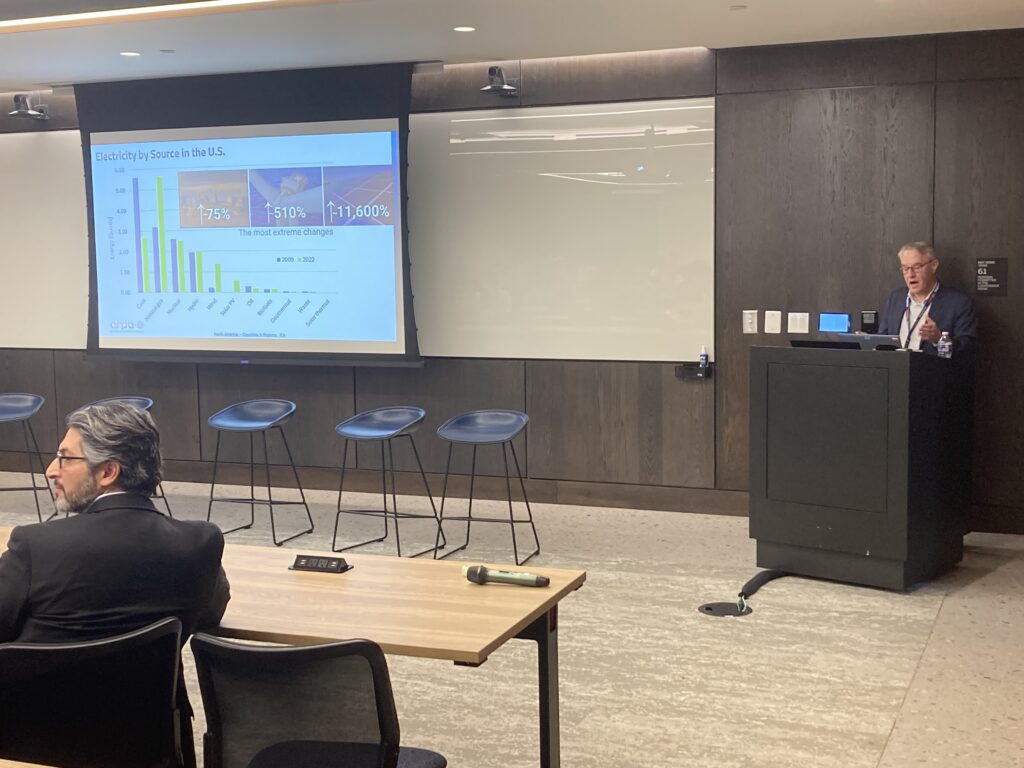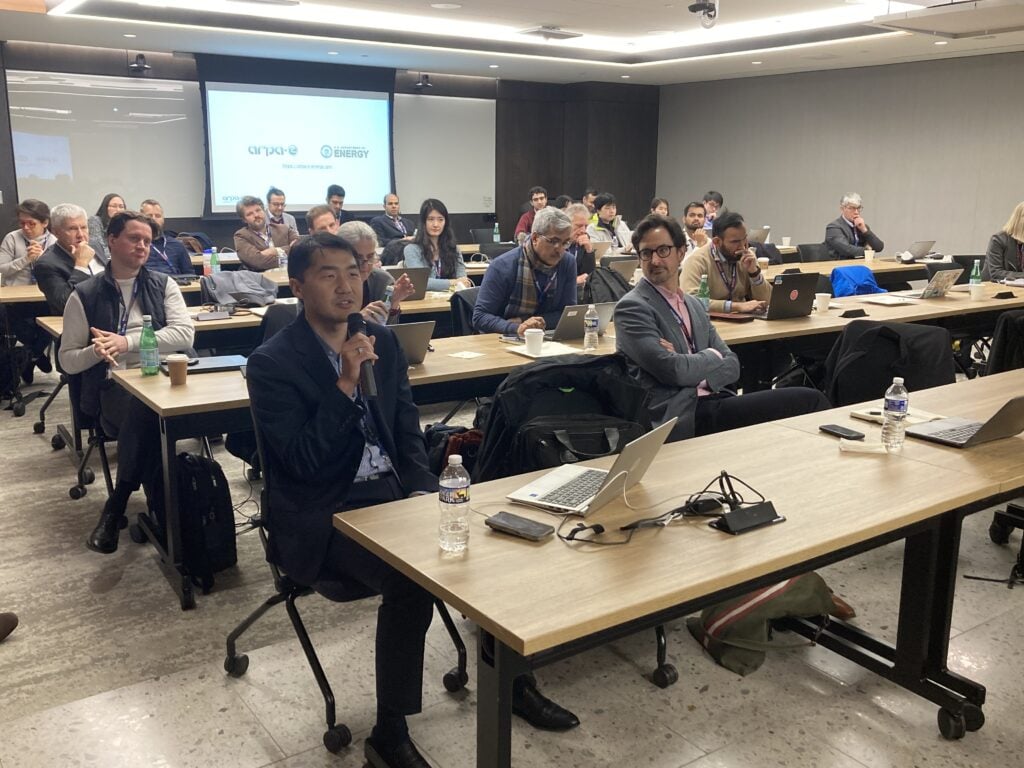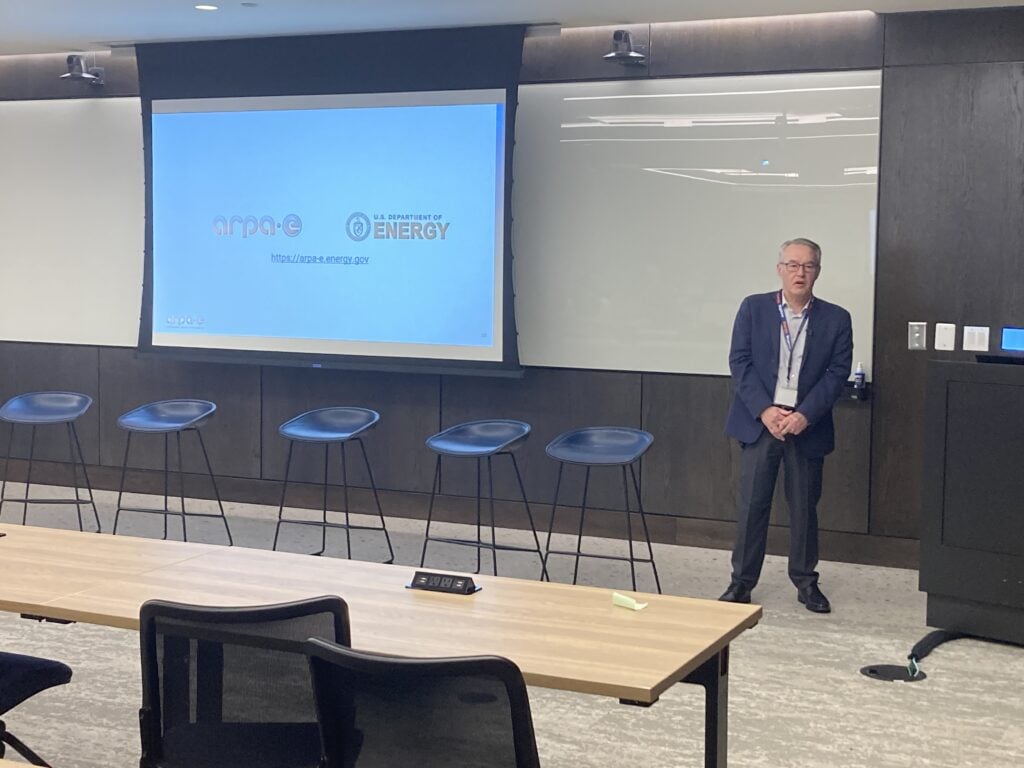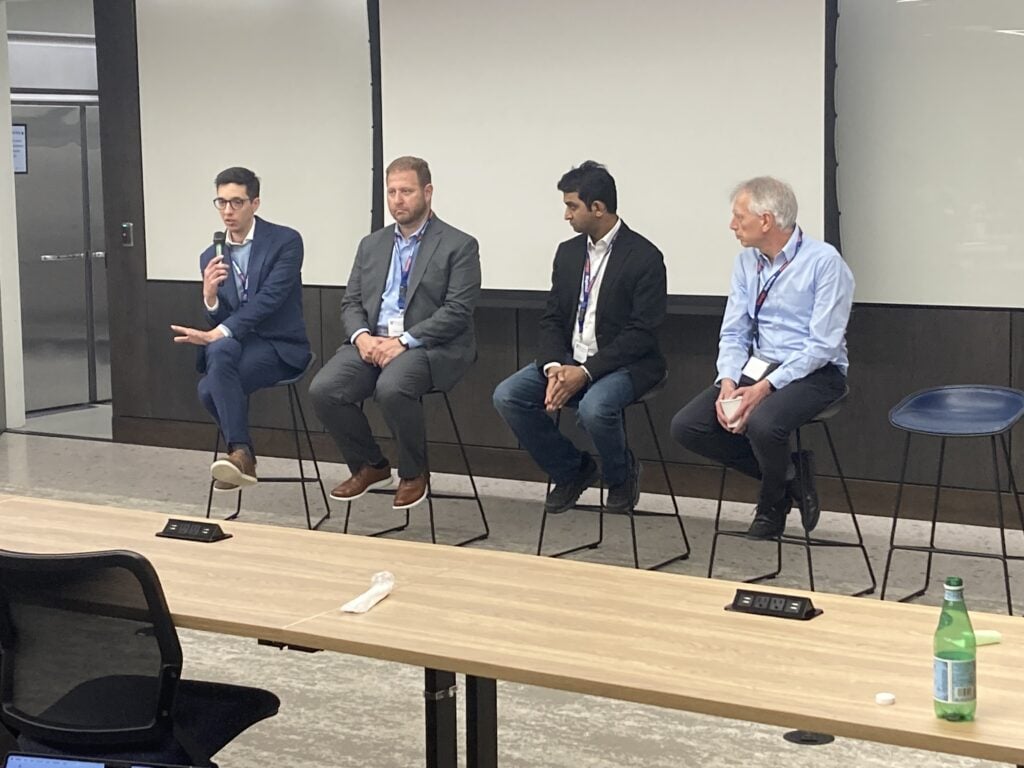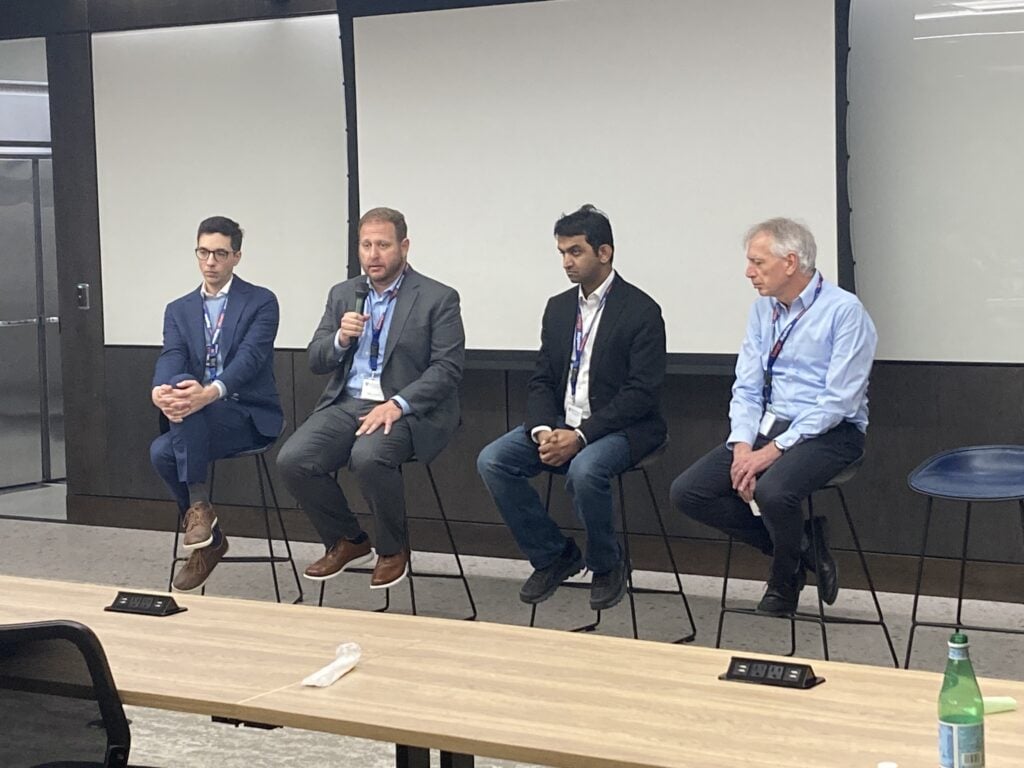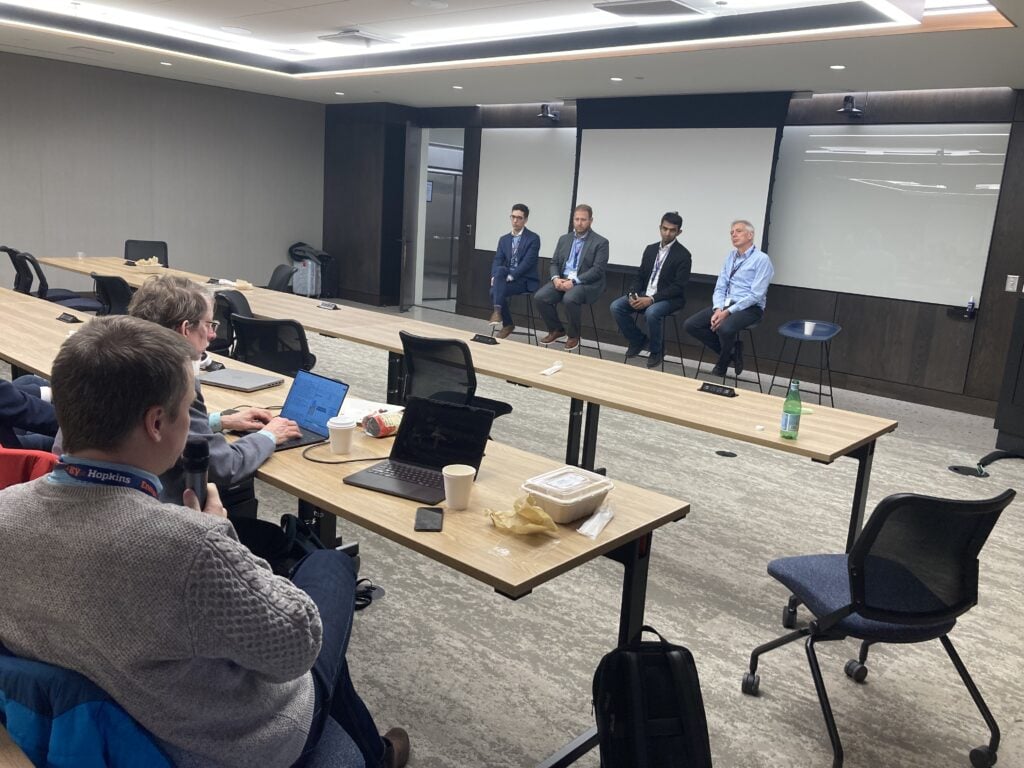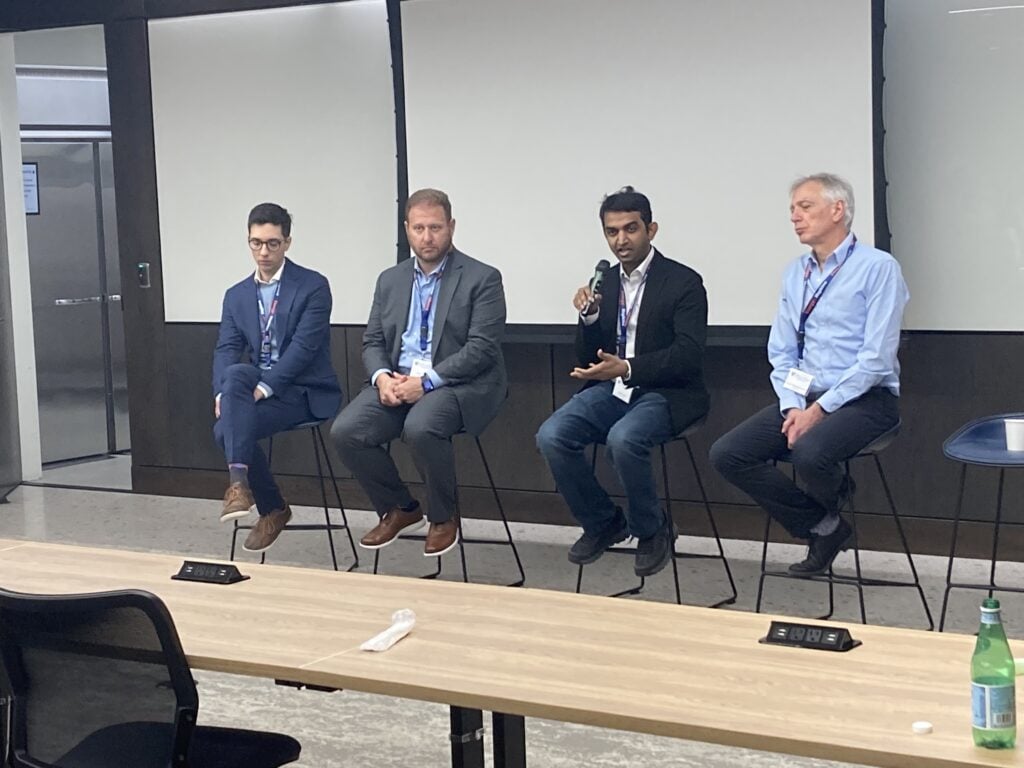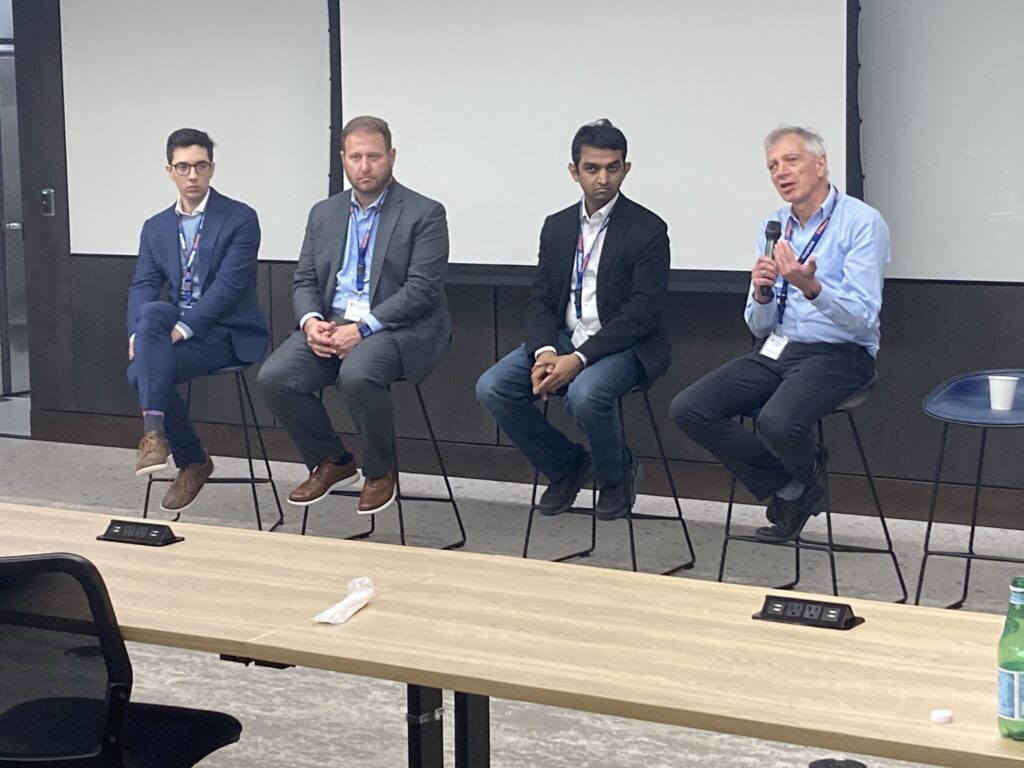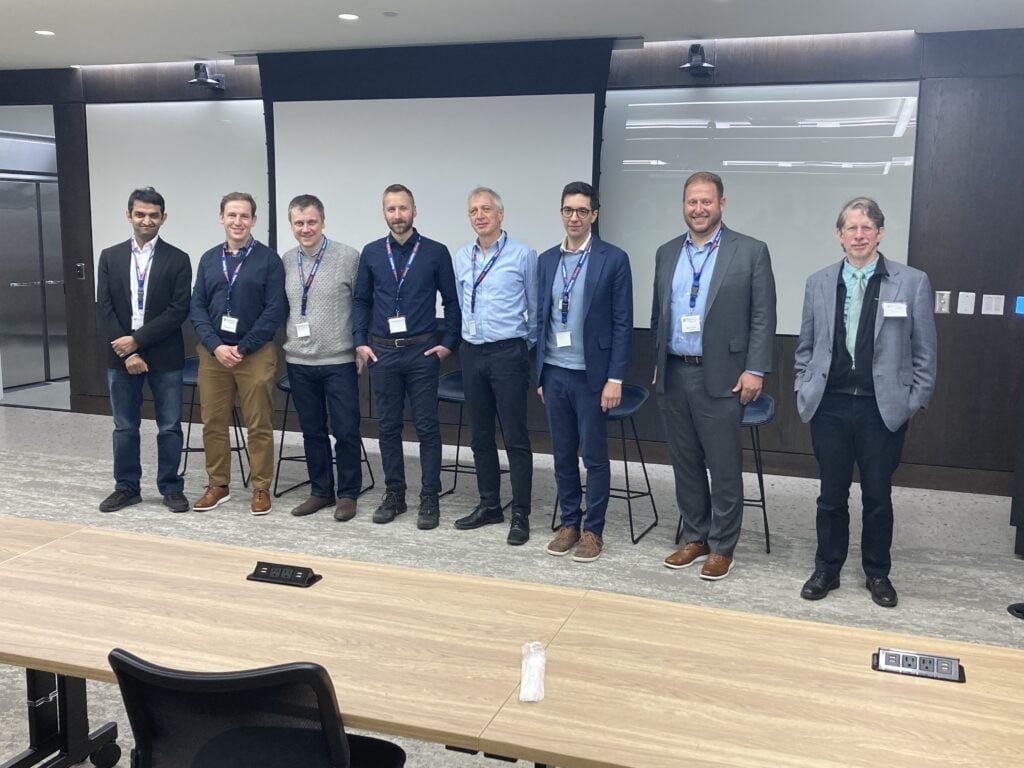The US Electric Power Innovation for a Carbon-free Society (EPICS) Center celebrated its first year with an all-day summit at Johns Hopkins University’s Bloomberg Center in Washington, DC on January 16.
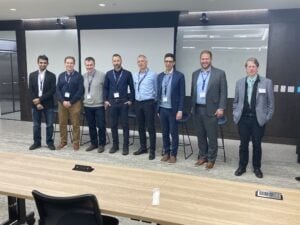
Panel that discussed “AI for Energy and Energy for AI,” with moderators Enrique Mallada and Jan Drgona, as well as Ben Hobbs (EPICS Global Director) and Yury Dvorkin (EPICS US Director)
EPICS, a National Science Foundation (NSF) Global Center for use-inspired research on global climate change and clean energy, is led by Johns Hopkins University (JHU) and has international partners in the UK and Australia. US partners include Resources for the Future, Georgia Tech and NSF AI4OPT Institute, and UC Davis.
The event brought together US EPICS members as well as government and industry partners to discuss a variety of topics through panels and plenary talks (see agenda), including:
- Advances in energy markets and policy: power grid management, market innovations, and integrating distributed energy resources into electricity markets
- AI’s role in energy: energy/power management tools and the role of AI in enhancing these tools, as well as addressing load growth and data centers
- Planning for the energy transition under uncertainty: the importance of dealing with the factors related to deep uncertainty on various technological, economic, and policy factors
“US EPICS wants to make impactful change, and we believe forming a partnership between academia, industry, and government is crucial to achieving that,” said Ben Hobbs, the Theodore M. and Kay W. Schad Professor of Environmental Management who also serves as the global director for EPICS.
Building on that vision, Yury Dvorkin, an associate professor of civil and systems engineering and electrical and computer engineering with the Whiting School of Engineering and US director for EPICS, said, “If we can leverage all those groups’ capabilities, we can make meaningful progress on increasing efficiency, reliability, resiliency, and affordability of electricity.”
During its inaugural year, EPICS not only added to its research team from other academic institutions, the Johns Hopkins Applied Physics Laboratory, and several national labs but also brought in collaborators from industry leaders GE Vernova, Constellation Energy Corporation (Constellation), and Electricity Reliability Council of Texas (ERCOT).
Most of those entities were represented at the summit, which aimed to showcase EPICS research and give government officials and industry partners the chance to provide input to catalyze research and development.
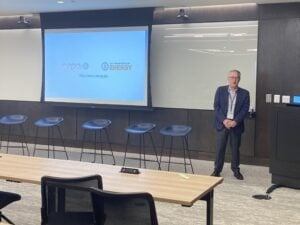
Keynote address delivered by Danny Cunningham, Deputy Director for Technology with ARPA-E
“The appeal of attending the US EPICS Summit is to identify areas for collaboration. GE Vernova has been growing in AI for the grid, so we are curious to see how US EPICS approaches those areas,” said Nurali Virani, a senior scientist in AI-Machine Learning at GE Vernova’s Advanced Research Center. “GE Vernova has its own research center dedicated to solving complex problems and creating innovative solutions in the energy sector. However, there are several open problems in this area, and the demand for answers is growing. Pursuing collaborative efforts and addressing some problems of mutual interest is the right path forward.”
Constellation also sent a sizable contingent to the event. US EPICS and Constellation have submitted proposals together previously, but Mason Emnett, a senior vice president of public policy for Constellation who delivered a keynote talk at the summit, said that the group was also there to learn more about US EPICS.
“It has been interesting to see over the last few years the number of academic programs that have been active in energy policy issues,” said Emnett. “Previously, a lot of the academic focus in sustainability was on the environmental space and less so on energy. Those two have started to overlap, and I think US EPICS is a great example of that. The focus on energy policy has expanded, which is our bread and butter. Working together makes a lot of sense.”
EPICS plans to host more in-person events in the future, with international ones organized by the center’s leaders in the UK and Australia, as well additional events in the United States at other universities. Those events, along with meaningful collaborations, should support the center’s efforts to enable an emissions-free power grid.
“Our aim is to continue to grow our network so that we can make positive changes to today’s power system management and institutions with a large variety of expertise,” Dvorkin said. “The first year of US EPICS is something the whole center is proud of. Hopefully we’ll have an even more exciting second year.”
- Opening remarks delivered by Jan Middendorf, Program Director, Office of International Science and Engineering, National Science Foundation
- Keynote address delivered by Leonardo Meeus, Director, Florence School of Regulation
- Panel on “Advances in Energy Markets and Policy
- Keynote address delivered by Danny Cunningham, Deputy Director for Technology with ARPA-E
- Panel on “AI for Energy and Energy for AI”

